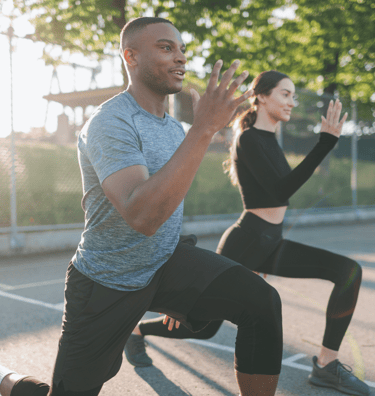The Right Fuel for Physical Activity
Fuelling your body properly before, during, and after physical activity is crucial for optimal performance and overall health. Here are essential tips to help you determine the right fuel for your body during physical activity.
Fuelling your body properly before, during, and after physical activity is crucial for optimal performance and overall health. Knowing the right fuel involves understanding the types of nutrients and their timing to support your body's energy needs. Here are essential tips to help you determine the right fuel for your body during physical activity.
Know Your Macronutrients: Understanding the role of macronutrients—carbohydrates, proteins, and fats—is fundamental. Carbohydrates are the primary energy source for moderate to high-intensity exercise, while proteins aid in muscle repair and growth. Healthy fats provide sustained energy during longer activities.
Timing is Key: Eat a balanced meal rich in carbohydrates and proteins 3-4 hours before exercise. Snack on easily digestible carbohydrates 30-60 minutes before the activity for quick energy. During longer sessions, consume small amounts of carbohydrates and fluids to maintain energy levels.
Stay Hydrated: Adequate hydration is crucial for optimal performance. Drink fluids before, during, and after exercise. Water is generally sufficient for activities under an hour, while longer durations might require sports drinks with electrolytes to replenish lost fluids.
Listen to Your Body: Pay attention to how your body responds to different foods before and during exercise. Experiment with various nutrient combinations and timings to find what works best for your energy levels and performance.
Consult a Professional: Seek guidance from a nutritionist or dietitian specialising in sports nutrition. They can provide personalised recommendations based on your activity level, body composition, and specific fitness goals.
Knowing the right fuel for physical activity involves a blend of understanding nutrient requirements, timing, hydration, personal experimentation, and professional guidance. This knowledge empowers individuals to optimise their performance and achieve their fitness objectives.


